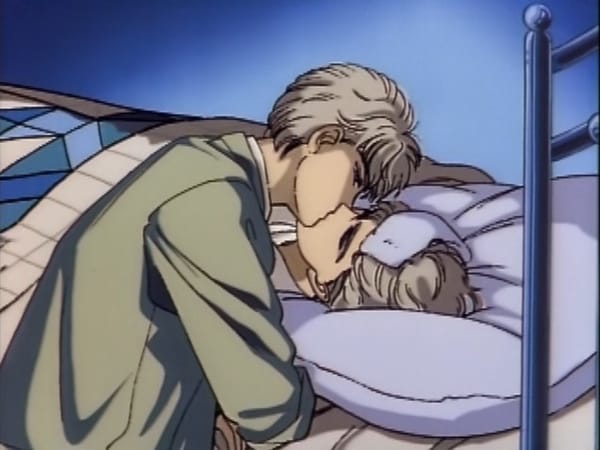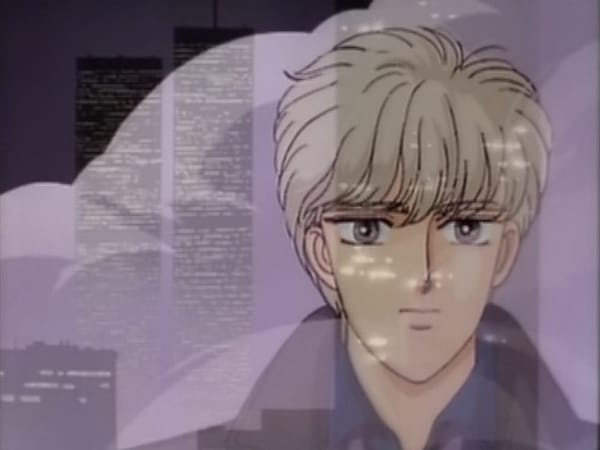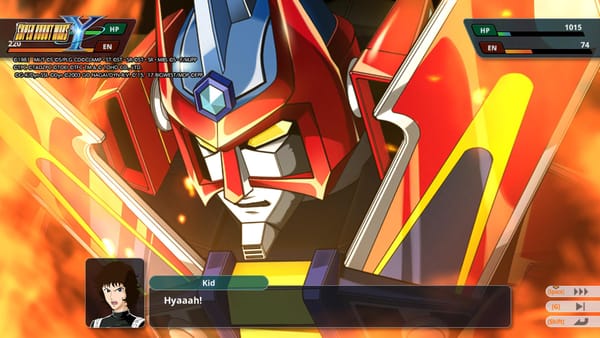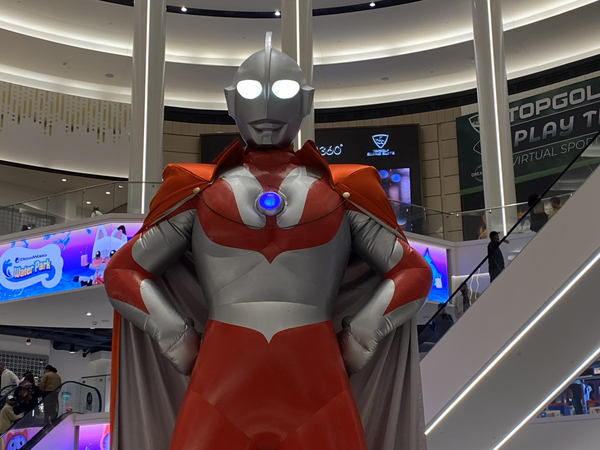The Black Dynamite followup Outlaw Johnny Black is hilarious when it wants to be, overstuffed, literally preachy, and definitely not what you expected
Who the hell is interrupting the second repetition of my lengthy sermon on forgiveness!?
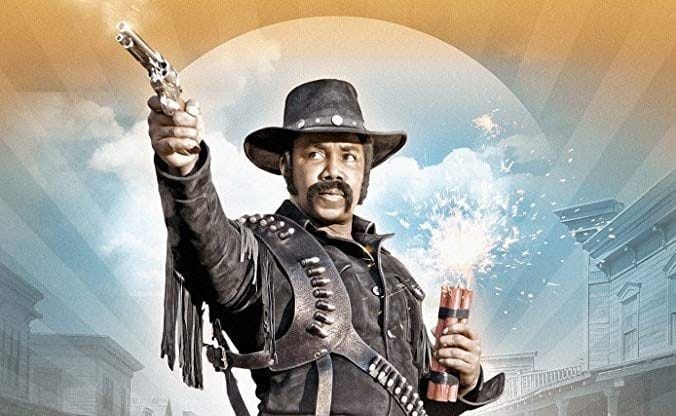
The blaxploitation spoof Black Dynamite is probably one of my favorite movies ever. I’ve seen it a million times because I’ve shown it to everyone I know. I wouldn’t dare call it a perfect film— not everything can be Char’s Counterattack— but it’s the best “we made a bad movie on purpose” I’ve ever seen.
At once absurdly silly and cleverly subtle, with loving attention to detail and just the right amount of wry winks at the camera, it’s endlessly rewatchable and quotable. (“Hush, little girls, lot of cats have that name.” - Black Dynamite)
So when I heard the decade-plus-late followup Outlaw Johnny Black was out, I pretty much jumped out of my seat looking for places to see it. As it turns out, Johnny Black was playing in even fewer theaters than Black Dynamite had back in the day: there were maybe six places in New York City showing it!1
Contrary to expectations and indeed the film’s own marketing, Outlaw Johnny Black is decidedly not “Cowboy Black Dynamite.” While still fundamentally a spoof, it drops the meta “we made a bad movie” conceit and attempts an even more difficult balancing act. Outlaw Johnny Black wants to be an outrageous cartoon spoof, and it wants to be a heartwarming religious drama about a tough guy learning to forgive and coming to Jesus. Gut-busting when it does comedy, but ponderous when it doesn’t, the movie does not exactly succeed in this attempt.
Two different movies, 20 minutes at a time
Johnny Black leads off with exactly the kind of scene the Black Dynamite fan came to see: Michael Jai White’s unflappable, unstoppable hero busts up a bunch of scrubs with comically slick gunplay and kung-fu moves straight out of Black Belt Jones. It turns out it’s a really long time before we get back to action.
With introductions out of the way, the movie goes for an extended flashback to Johnny’s happy childhood, his bond with his preacher dad (including the first of many full-on sermons), and his life-consuming vendetta against the sadistic, racist bank robber who murdered his dad. All of these scenes are played totally straight, without so much as a single throwaway gag: the movie takes its melodrama seriously.
And that never quite lands the right way, because the western world of the movie is in full-on cartoon spoof territory, and you’re suddenly asked to sincerely care about characters who are of that same type. The proceedings are so absurd that when the comedy screeches to a halt to reach for the audience’s heart strings, it’s difficult to find a response. After all, you just saw this dude flip a bad guy head-over-heels by his balls.
Church-movie vibes
The biggest surprise of Outlaw Johnny Black is how sincere it is about its religious aspect. This is a film that repeatedly pauses to deliver actual sermons. I’m not speaking figuratively here, I mean that three different preacher characters— including the hero— stop the movie in its tracks to testify on behalf of the Lord.
The theme is an old classic: the pursuit of revenge is a weight on the soul, and forgiveness will set you free as well as the one who’s wronged you. I know that this is the theme of the film because it tells you so directly, many times; the parishioners joyfully call back as Johnny yells “Turn it loose!”
There’s nothing wrong with the film having a message or a religious point of view: the issue is that the movie’s two frequencies never mesh together, and the movie screeches to a silent halt every time someone starts to quote The Good Book. Not at all a film in a hurry, Outlaw Johnny Black is two hours and ten minutes long, and you feel it. In my completely unscientific, totally feel-based analysis, it could have lost 20 or 30 minutes and been the same movie.
Racial comedy goes both too far and not far enough
“I was gonna say “nincompoop”!”
A black cowboy movie can’t ignore the inherent racism of the Wild West era, and racial commentary is the cornerstone of Outlaw Johnny Black’s setting and its humor. The villains are an evil real estate mogul trying to Tulsa Massacre the town and the aforementioned racist bandit who’s called in to do the job. Needless to say that in this version, the bad guys lose spectacularly.
My favorite recurring gag is Johnny’s wanted poster, a cartoonish racist caricature that looks nothing like the man. White characters— even the good guys— look at this poster, and look at Johnny, and they say “Well, it *does* look like him…” That’s about the tone of the race comedy here— big cartoony punchlines, along with subtle zingers shot from the hip— and it had our audience roaring with knowing, familiar laughter throughout.
Some of the edgier gags don’t land— like a really dark running gag about an acronym that’s a little too real for this goofy movie2— and a superfluous, casually cruel fat joke straight out of the 90s is particularly out of place.
The single most awkward joke in the film is the exclusive use of extremely obviously white actors as Native Americans as a sight gag. It’s very obviously intended to be a comment on the same practice in the old Westerns the movie is homaging: the first “Native” you see is pale with bright, piercing blue eyes; you’re meant to laugh and it’s meant to be commentary.
I think there’s a way to make this joke land for everybody in the theater, not just those who know what it’s commenting on, and indeed if you’re going to do it you *have* to let everybody in on the joke, because without that it just looks racist.3
But this gag’s punchline never comes. I get the comedy value of just never mentioning something that’s clearly off— don’t you think something’s off about Mechazawa today? Doesn’t he look tired?— but the presentation of the Native Americans here leans so hard into old racist casting practices that it looks like a re-enactment of old Hollywood racism, rather than a comment about it. The cringe peak of the movie, a Native wedding scene with subtitled gibberish dialogue, had my otherwise receptive theater dead silent. Sometimes the “why” doesn’t outweigh the “what”.
This sure was a weird movie. See it, but maybe wait for streaming
I laughed so hard at this movie, and yet I can’t give it my full unqualified recommendation. It’s messy, it really takes its time, and it never fully comes together. It’s not even close to as good as Black Dynamite, and that movie had issues too! But I really did laugh really hard. That bit with the holster? That was a good bit. See this movie eventually, but not for twenty bucks like I did.
Oh, and it’s filmed in Cinemaphonic Quadrovision, so it’s got that going for it.
I wound up seeing it in a closet of a room in a multiplex, a packed house with 20 seats. ↩
A running joke that the town’s destruction will be justified by a made-up charge so powerful it will justify any atrocity: “White Women Raped By Black Men” (WWRBBM). Obviously I know this was an actual real thing that happened all the damn time in history, but it never really lands as a running gag past the first use, perhaps because it’s so dark. Maybe they chose an acronym to keep a PG-13 rating? ↩
The LA Times review is just “this is problematic” and drops off at that, and the problem is that the film doesn’t give them a reason not to feel that way. ↩
